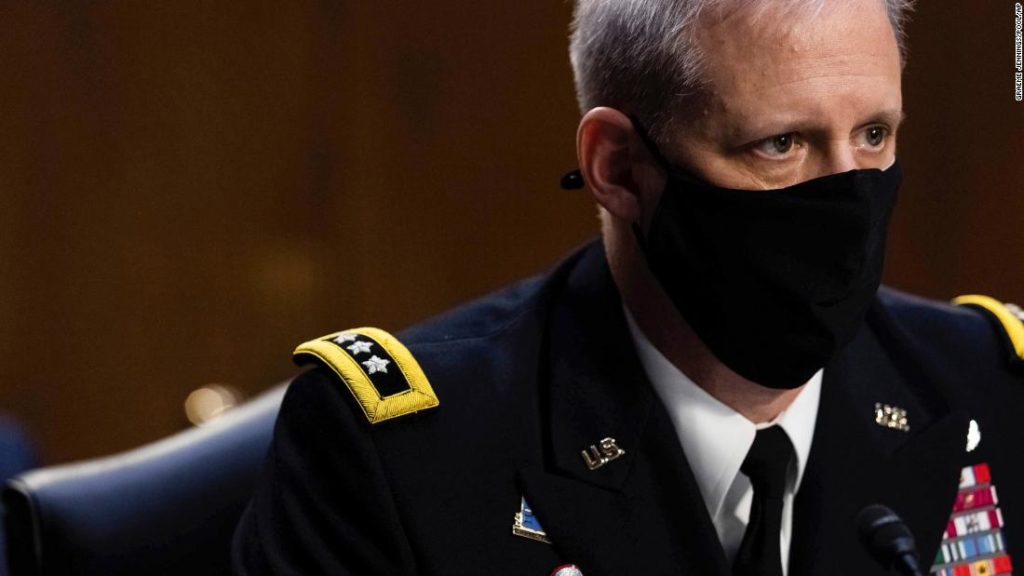“The Russian military is an existential threat to the United States,” Lt. Gen. Scott Berrier, director of the Defense Intelligence Agency, said during a Senate Armed Services Committee hearing about worldwide threats.
Berrier said the country’s military is being used to maintain influence over states “along its periphery, compete with US global primacy and compel adversaries who challenge Russia’s vital national interests.”
“Moscow continues to invest in its strategic nuclear forces, in new capabilities to enhance its strategic deterrent, and that places the US homeland at risk,” Berrier said.
“So I responded directly and proportionately to Russia’s interference in our elections and cyberattacks on our government and our businesses — they did both of these things, and I told them we would respond, and we have. But we can also cooperate when it’s in our mutual interests,” Biden said.
Tensions high but a summit could take place
Russia has not yet responded officially to the United States’ offer of a summit, Putin spokesman Dmitry Peskov told reporters Wednesday.
“We are still looking into this proposal and analyzing the situation,” Peskov said. “Each time Washington’s words about the summit meeting are accompanied by words about the need for Russia to pay some kind of price and about inevitable sanctions. So of course, deep analysis is required here.”
A buildup of Russian troops along the border in recent weeks had reignited tensions in eastern Ukraine, where government forces have battled Russian-backed separatists demanding independence from Kiev since 2014.
“At present, military units and formations are marching to railway stations, airfields, loading onto landing ships, railway platforms and military transport aircraft,” Tass reported on April 23, citing the Ministry of Defense.
Russian Defense Minister Sergei Shoigu’s announcement came weeks after Moscow initiated the largest buildup of troops near the Ukrainian border since 2014. It was unclear from the announcement how many troops would remain in the region.
Berrier emphasized that the Russian military’s power comes from its investment into and development of nuclear weapons as well as its “conventional force largely postured for defensive and regional operations.”
“Russia has a growing ability to project power with long-range precision cruise missiles and limited expeditionary capabilities,” he added.
Berrier pointed out that Russian military leaders are “incorporating lessons from Russia’s involvement in Syria into training and exercises.”
When questioned by Sen. Deb Fischer, a Nebraska Republican, about Russia’s nuclear warhead development, Berrier confirmed Defense Intelligence Agency assessments from 2018 that stated Russia is updating its nuclear warhead production complex and is producing “hundreds of nuclear warheads each year,” saying those assessments are still valid.
Berrier also confirmed that while the US is adhering to the nuclear testing moratorium, Russia is not.
“The United States believes that Russia probably is not adhering to the nuclear testing moratorium in the manner consistent with the yield, or with the zero yield standard. The United States, by contrast, is upholding a zero yield standard, end quote,” Fischer said. “Does that still remain DIA’s assessment?”
“It does, Senator,” Berrier said.
CNN’s Barbara Starr, DJ Judd and Natasha Bertrand contributed to this report.
You may also like
-
Afghanistan: Civilian casualties hit record high amid US withdrawal, UN says
-
How Taiwan is trying to defend against a cyber ‘World War III’
-
Pandemic travel news this week: Quarantine escapes and airplane disguises
-
Why would anyone trust Brexit Britain again?
-
Black fungus: A second crisis is killing survivors of India’s worst Covid wave

